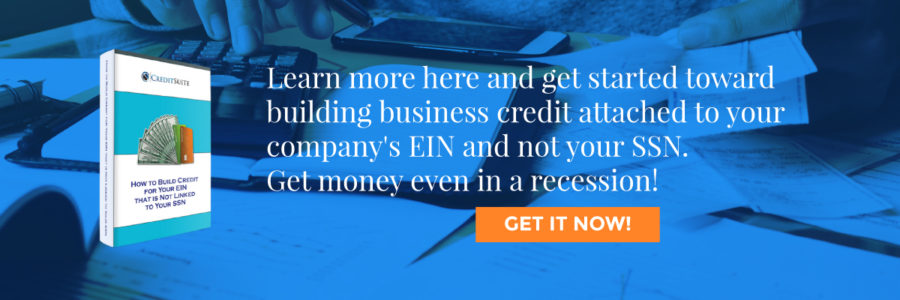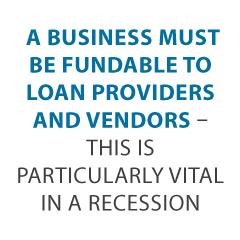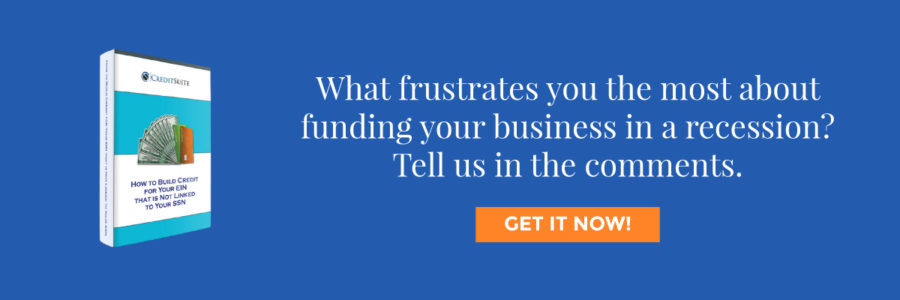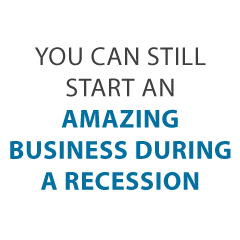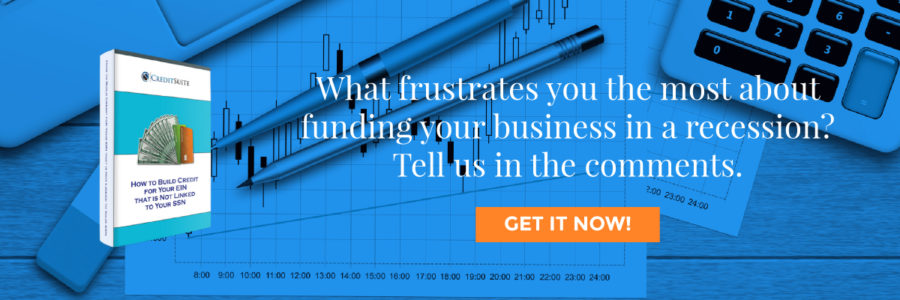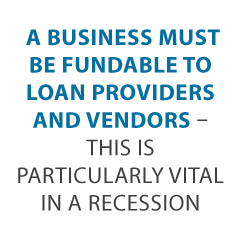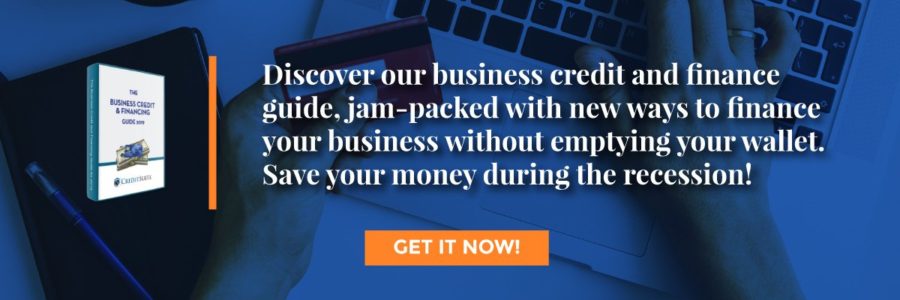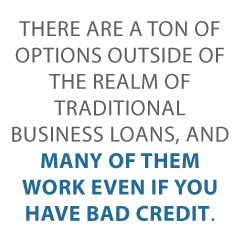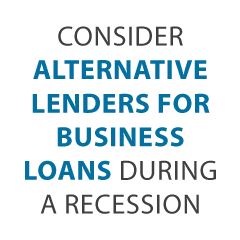Recession Age Funding
The number of American banks as well as thrifts has been decreasing slowly for a quarter of a century. This is from consolidation in the marketplace in addition to deregulation in the 1990s, reducing barriers to interstate banking. See: fundera.com/blog/happened-americas-small-businesses-financial-crisis-six-years-start-crisis-look-back-10-charts. Assets concentrated in ever‐larger banks is problematic for small business proprietors. Big banks are much less likely to make small loans. Economic slumps indicate banks become more careful with lending. Luckily, business credit does not rely upon banks. That’s why we’re offering our Fundera review.
Looking for Funding? You Need to Read Our Fundera Review
Fundera is an online lending company. They offer small business loans with a variety of options. They also have SBA loans and equipment financing, among other financing options. We look at the specifics and drill down into the details of Fundera online lending.
Background
Fundera is located online here: https://www.fundera.com/. Their physical address is:
123 William Street, 21st Floor
New York NY 10038.
You can call them here: (800) 386-3372. You can email them at: support@fundera.com. Fundera is financed by Khosla Ventures; SGE Susquehanna Growth Equity, LLC; Core Innovation Capital; First Round; and QED Investors.
Fundera Review: SBA Loans
Most companies approved had four or more years in business. Most business owners approved had 680 or better credit scores. And most companies approved had $180,000 in annual revenue. Loan amounts run from $5,000 – 5 million, with 5 – 25 year terms. You can get funding in as little as 2 weeks. However, they may require collateral.
Fees
Their interest rates start at 6%.
Fundera Review: Term Loans
Most companies approved had three or more years’ time in business. Most business owners approved had a credit score of 680 or better. And most companies approved had $300,000 or more in annual revenue. $25,000 – 500,000 is available. Terms are 1 – 5 years. It is as little as 2 days to approval.
Fees
Their interest rates range from 7 – 30%, and there are possible prepayment penalties.
Fundera Review: Equipment Financing
Most companies approved had been in business for two or more years. Most business owners approved had a credit score of 630 or better. And most companies approved had $130,000 or more in annual revenue. Your loan amount up is to 100% of equipment value. The term is the expected life of the equipment, and the equipment serves as the collateral. You can get approval in as little as 2 days.
Fees
Interest rates range from 8 – 30%. Equipment depreciation may be required; this cuts into tax deductions.
Fundera Review: Business Lines of Credit
Most companies approved had been in business for a year or more. Most business owners approved had a credit score of 630 or better. And most companies approved had $180,000 or more in annual revenue. $10,000 to over $1 million in funding is available, with 6 months to 5 years terms. Approval is in as little as one day.
Fees
Interest rates range from 7 – 25%. However, they may require collateral. There are higher rates for lower credit scores.
Fundera Review: Invoice Financing
Most companies approved had been in business for one year or more. Most business owners approved had a credit score of 600 or better. And most companies approved had $130,000 or more in annual revenue. The maximum advance is equivalent to 100% of the total amount of invoice. Approval is in as little as one day.
Fees
Get a fast advance of about 85% of the value of invoices. Most of the other 15% is paid later. The factor fee is 3% + %/week outstanding. These fees are based on the time it takes for a customer to pay off the invoice.
Fundera Review: Advantages
Advantages include several flexible options. And some of them can get an approval with rather low minimum FICO scores. This choice makes Fundera an option for entrepreneurs who do not have stellar credit. You can also get some forms of funding with fairly low annual revenues. Companies with comparably low annual revenue could get approvals for startup loans and personal loans for business.
Fundera Review: Disadvantages
Disadvantages include your fees are based on how fast your customer pays, so any deadbeat customers will cost you.
An Alternative: Building Business Credit
Small business credit is credit in a small business’s name. It doesn’t attach to an entrepreneur’s personal credit, not even if the owner is a sole proprietor and the only employee of the business.
As a result, an entrepreneur’s business and individual credit scores can be very different. And it is vital in a poor economy.
The Benefits
Since small business credit is separate from personal, it helps to secure an entrepreneur’s personal assets, in case of a lawsuit or business bankruptcy.
Also, with two distinct credit scores, a business owner can get two different cards from the same merchant. This effectively doubles buying power.
Another advantage is that even startup businesses can do this. Going to a bank for a business loan can be a recipe for frustration. But building business credit, when done right, is a plan for success.
Consumer credit scores are dependent on payments but also additional factors like credit utilization percentages.
But for company credit, the scores really just hinge on whether a small business pays its debts in a timely manner.
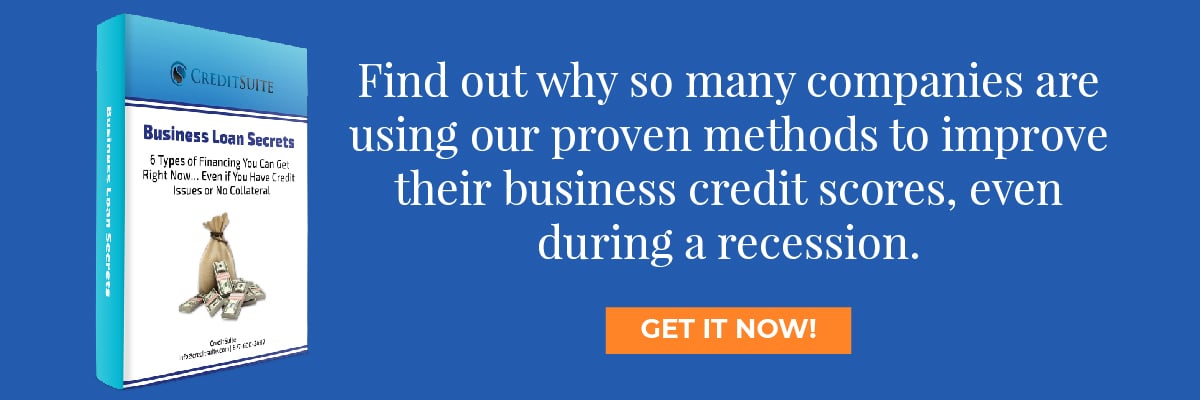
Learn business loan secrets with our free, sure-fire guide. We can help you get money, even during a recession.
The Process
Growing small business credit is a process, and it does not occur without effort. A small business must proactively work to build business credit.
That being said, it can be done easily and quickly, and it is much quicker than establishing personal credit scores.
Vendors are a big aspect of this process.
Accomplishing the steps out of order will cause repetitive rejections. No one can start at the top with business credit. For instance, you can’t start with retail or cash credit from your bank. If you do, you’ll get a rejection 100% of the time.
Business Fundability
A business must be fundable to lenders and vendors.
That’s why, a small business will need a professional-looking website and e-mail address. And it needs to have website hosting bought from a supplier like GoDaddy.
In addition, company telephone numbers must have a listing on ListYourself.com.
In addition, the business telephone number should be toll-free (800 exchange or the like).
A business will also need a bank account devoted strictly to it, and it has to have all of the licenses essential for operating.
Licenses
These licenses all must be in the identical, correct name of the small business. And they need to have the same business address and telephone numbers.
So keep in mind, that this means not just state licenses, but possibly also city licenses.

Learn business loan secrets with our free, sure-fire guide. We can help you get money, even during a recession.
Working with the IRS
Visit the IRS web site and acquire an EIN for the business. They’re free. Choose a business entity like corporation, LLC, etc.
A small business can get started as a sole proprietor. But they will most likely want to change to a form of corporation or an LLC.
This is in order to decrease risk. And it will maximize tax benefits.
A business entity will matter when it pertains to tax obligations and liability in the event of a lawsuit. A sole proprietorship means the business owner is it when it comes to liability and taxes. Nobody else is responsible.
Sole Proprietors Take Note
If you operate a company as a sole proprietor, then at the very least be sure to file for a DBA. This is ‘doing business as’ status.
If you do not, then your personal name is the same as the small business name. Consequently, you can end up being personally responsible for all business financial obligations.
And also, per the IRS, using this arrangement there is a 1 in 7 probability of an IRS audit. There is a 1 in 50 chance for corporations! Prevent confusion and drastically decrease the odds of an Internal Revenue Service audit at the same time.
But never look at a DBA filing as ever being anything beyond a steppingstone to incorporating.
Instigating the Business Credit Reporting Process
Start at the D&B web site and get a totally free D-U-N-S number. A D-U-N-S number is how D&B gets a company in their system, to generate a PAYDEX score. If there is no D-U-N-S number, then there is no record and no PAYDEX score.
Once in D&B’s system, search Equifax and Experian’s websites for the business. You can do this at www.creditsuite.com/reports. If there is a record with them, check it for accuracy and completeness. If there are no records with them, go to the next step in the process.
By doing this, Experian and Equifax will have something to report on.
Vendor Credit Tier
First you should establish trade lines that report. This is also known as the vendor credit tier. Then you’ll have an established credit profile, and you’ll get a business credit score.
And with an established business credit profile and score you can begin to obtain credit in the retail and cash credit tiers.
These kinds of accounts often tend to be for the things bought all the time, like marketing materials, shipping boxes, outdoor work wear, ink and toner, and office furniture.
But first of all, what is trade credit? These trade lines are credit issuers who will give you preliminary credit when you have none now. Terms are often Net 30, versus revolving.
Therefore, if you get approval for $1,000 in vendor credit and use all of it, you will need to pay that money back in a set term, such as within 30 days on a Net 30 account.
Details
Net 30 accounts need to be paid in full within 30 days. 60 accounts have to be paid fully within 60 days. In contrast to with revolving accounts, you have a set time when you have to pay back what you borrowed or the credit you used.
To launch your business credit profile the proper way, you should get approval for vendor accounts that report to the business credit reporting agencies. When that’s done, you can then make use of the credit.
Then pay back what you used, and the account is on report to Dun & Bradstreet, Experian, or Equifax.
Vendor Credit Tier – It Makes Sense
Not every vendor can help like true starter credit can. These are vendors that will grant an approval with negligible effort. You also need them to be reporting to one or more of the big three CRAs: Dun & Bradstreet, Equifax, and Experian.
You want 5 to 8 of these to move onto the next step, which is the retail credit tier. But you may have to apply more than one time to these vendors. So, this is to demonstrate you are dependable and will pay in a timely manner.
Retail Credit Tier
Once there are 5 to 8 or more vendor trade accounts reporting to at least one of the CRAs, then move to the retail credit tier. These are companies like Office Depot and Staples.
Only use your SSN and date of birth on these applications for verification purposes. For credit checks and guarantees, use the small business’s EIN on these credit applications.
One instance is Lowe’s. They report to D&B, Equifax and Business Experian. They need to see a D-U-N-S and a PAYDEX score of 78 or more.
Fleet Credit Tier
Are there 8 to 10 accounts reporting? Then move onto the fleet credit tier. These are companies such as BP and Conoco. Use this credit to purchase fuel, and to repair, and take care of vehicles. Just use your SSN and date of birth on these applications for verification purposes. For credit checks and guarantees, make sure to apply using the company’s EIN.
One such example is Shell. They report to D&B and Business Experian. They want to see a PAYDEX Score of 78 or higher and a 411 business telephone listing.
Shell might claim they want a specific amount of time in business or profits. But if you already have adequate vendor accounts, that won’t be necessary. And you can still get approval.

Learn business loan secrets with our free, sure-fire guide. We can help you get money, even during a recession.
Cash Credit Tier
Have you been responsibly handling the credit you’ve up to this point? Then progress to the cash credit tier. These are businesses such as Visa and MasterCard. Only use your SSN and date of birth on these applications for verification purposes. For credit checks and guarantees, use your EIN instead.
One such example is the Fuelman MasterCard. They report to D&B and Equifax Business. They need to see a PAYDEX Score of 78 or higher. And they also want you to have 10 trade lines reporting on your D&B report.
Plus, they want to see a $10,000 high credit limit reporting on your D&B report (other account reporting).
In addition, they want you to have an established small business.
These are companies like Walmart and Dell, and also Home Depot, BP, and Racetrac. These are often MasterCard credit cards. If you have 14 trade accounts reporting, then these are in reach.
Monitor Your Business Credit
Know what is happening with your credit. Make certain it is being reported and deal with any inaccuracies as soon as possible. Get in the habit of taking a look at credit reports and digging into the particulars, and not just the scores.
We can help you monitor business credit at Experian and D&B for 90% less than it would cost you at the CRAs. See: www.creditsuite.com/monitoring.
Update Your Data
Update the information if there are inaccuracies or the data is incomplete.
Fix Your Business Credit
So, what’s all this monitoring for? It’s to dispute any mistakes in your records. Mistakes in your credit report(s) can be taken care of. But the CRAs normally want you to dispute in a particular way.
Disputes
Disputing credit report mistakes typically means you mail a paper letter with copies of any proofs of payment with it. These are documents like receipts and cancelled checks. Never mail the original copies. Always mail copies and retain the original copies.
Fixing credit report errors also means you specifically itemize any charges you challenge. Make your dispute letter as understandable as possible. Be specific about the problems with your report. Use certified mail so that you will have proof that you sent in your dispute.
A Word about Building Business Credit
Always use credit responsibly! Don’t borrow more than what you can pay off. Monitor balances and deadlines for repayments. Paying punctually and in full will do more to increase business credit scores than just about anything else.
Building small business credit pays. Excellent business credit scores help a company get loans. Your lending institution knows the small business can pay its financial obligations. They know the company is bona fide.
The small business’s EIN attaches to high scores and credit issuers won’t feel the need to request a personal guarantee.
Business credit is an asset which can help your company for years to come.
Upshot
With fairly low annual revenue and minimum FICO score requirements, the Fundera online lender program is a good choice for newer businesses that haven’t quite gotten up to speed yet. However, because your company will be charged for deadbeat clients, even a startup will need to be certain their customers will pay on time.
And finally, as with every other lending program, whether online or offline, remember to read the fine print and do the math. Go over the details with care. Only you can decide if this option will be good for you and your company.
In addition, consider alternative financing options that go beyond lending. This includes building business credit. In a recession, you need to best decide how to get the money you need to help your business grow.
Today, we want to hear from our audience! Share your voice with us about your experiences with online lenders.
The post Stop! Before You Borrow, Check Out Our Fundera Review for Better Recession Funding appeared first on Credit Suite.


